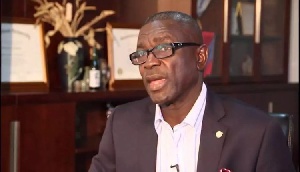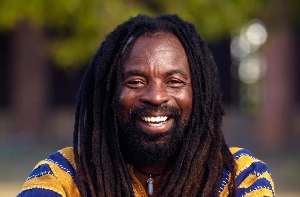President of UT Holdings, Prince Kofi Amoabeng has denied being summoned to appear before the Economic and Organized Crime Office (EOCO) on Wednesday.
“My simple answer is that EOCO has not summoned myself or any of UT bank directors to appear before it.
As a matter of fact, you know I have respect for state institutions especially EOCO and the type, if they should send us a summons that we should come, certainly we will go,” Mr Amoabeng told JoyBusiness in an exclusive interview.
There were earlier reports in the media that the directors of the defunct UT bank had been invited by EOCO to appear before it at 9:30 am on Wednesday to answer questions on how their actions led to the collapse of the institution.
But Mr Amoabeng questioned where the media had that precise information from, “may be you want to question the publication in the Daily Graphic of yesterday … and I saw it somewhere in the evening… where from that precise information.”
He said the directors of the defunct UT bank are ready to appear before EOCO if they are summoned to do so.
Background
The Bank of Ghana, in August last year, revoked the licences of UT Bank and Capital Bank due to severe impairment of their capital.
The central bank approved a purchase and assumption transaction with the GCB Bank Ltd that transfers all deposits and selected assets of UT and Capital banks to the GCB Bank Ltd.
The liabilities of the two banks, according to the central bank, overwhelmed their assets, leaving the BoG with no option but to undertake a purchase and assumption transaction as the least costly method of dealing with a collapse.
The banks were “unable to develop an acceptable plan”, according to the BoG, although it made efforts to help both banks to recover through private alternatives.
However, the owners and managers of the UT and Capital banks were unable to increase the capital of the banks to address the insolvency.
An investigative report revealed, among other key findings, that the two liquidated banks were run by owner chief executives, with complete disregard for internal rules and banking regulations.
The directors of two banks would be made to answer questions on how they singularly made decisions on credit extension and breached all the rules regarding related party transactions and connected lending.
General News of Thursday, 29 March 2018
Source: mynewsgh.com

















